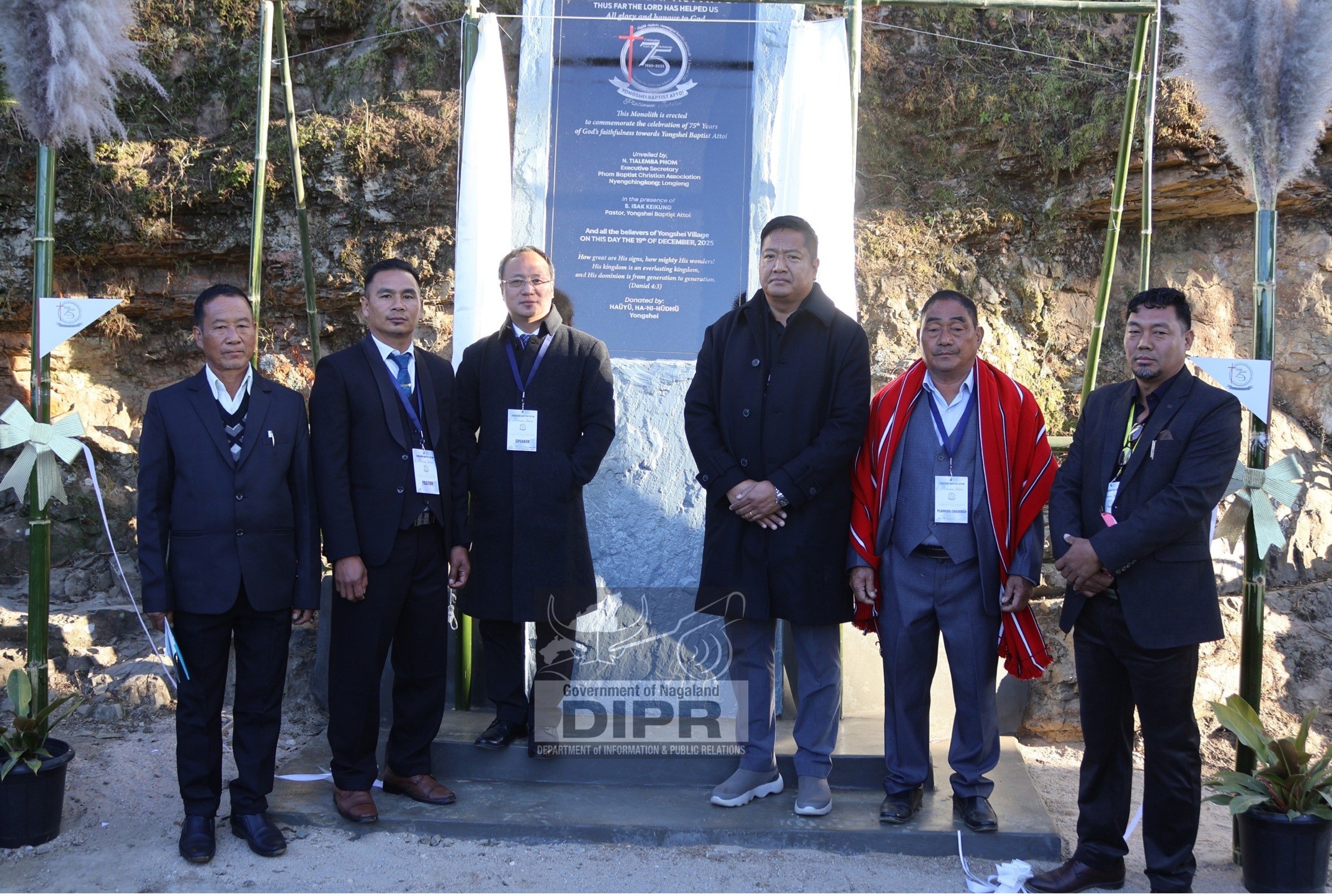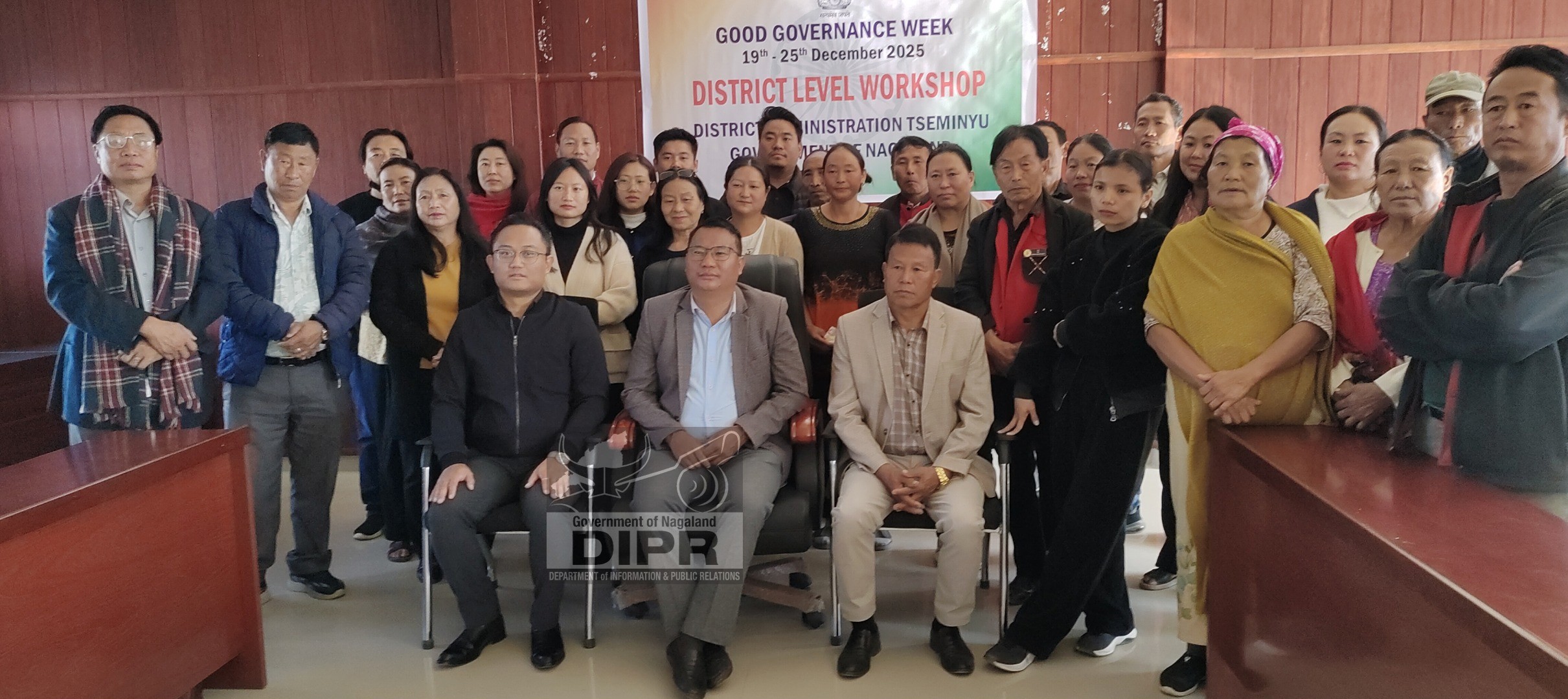The Nagaland Building & Other Construction Workers' Welfare Board (NBOCWWB) & Finance Department held a consultative meeting with engineering departments under the Government of Nagaland on 13th May 2022 at Conference Hall, New Secretariat, Kohima.
Chairman, NBOCWWB, Dr. Kekhrie Yhome said that the Board's primary function is to protect, provide and ensure social security for all those who are engaged in building and other construction activities. He said although the Parliament of India passed the Building and Other Construction Workers' (Regulation of Employment and Conditions of Service) Act, 1996 (Act No. 27 of 1996), which came into force on 1 March 1996, Federal States were slow to implement, including Nagaland, and adoption of Nagaland Building and Other Construction Workers' (Regulation of Employment and Conditions of Service) Rules, 2010 began on 15 June 2011.
Yhome further stated that the NBOCWWB is a "statutory" and "body corporate" established by an Act of Parliament. It is a health and welfare-oriented board with enforcement powers and Welfare Fund is incorporated into the Board, the Fund is chiefly derived from the 1% workers' welfare Cess levied on the "cost of construction." He added that the Building & Other Construction Workers' Welfare Cess [BOCWW Cess] is administered under the Building and Other Construction Workers' Welfare Cess Act, 1996. Cess is not a tax or revenue, but maybe a "fee" which is constitutionally and legislatively enacted assessment and levy and therefore the collection is strictly compulsory, and Drawing and Disbursing Officers (DDOs) failing to pay Cess within the specified time frame may attract Cess recovery, with penalty or interest, or imprisonment.
Reiterating directives from the Supreme Court of India, Yhome said the Department of Finance, Nagaland, issued standing notifications in 2012 to various concerned Departments for compulsory Cess collection and every Drawal Authority and sanction notification by the Department of Finance explicitly informs Cess deduction. Many establishments, including Ministries under the Government of India, State Departments, and Government-run Public Sector Undertakings operating in our State, have not been dutifully remitting or reporting their Cess payments to the Board. Likewise, delay in payment is another concern, which violates procedures and for a salary-economy State like ours, the huge financial burden on public expenditure will immediately trigger an economic collapse, and the public will suffer from economic depression for many decades.
For the moment, the Chairman said that they are initiating a re-examination of State expenditures for the past three financial years, on a department by department basis and he appealed to each and every department to work together to ensure the State's fiscal health. He also said that the Board, on its part, shall enforce honesty in financial administration by various cess-payable agencies, and where erring officials are found, the Board shall initiate legal action and where lapses are detected, the Board shall decide further action.
CEO, NBOCWWB, T. Chubayanger said that the Welfare Board is constituted to register the construction workers in the state and provide them social security by providing certain benefits. And in order to provide these benefits, the central government created the Building and Other Construction Workers (Regulation of Employment and Conditions of Service) Act, 1996. The purpose of this Act is to keep an eye on the working conditions of the workers. It acts as a social welfare scheme that works with the motive to provide benefits to the workers who are involved in the activities related to building and construction across the country. The CEO also said that they are trying to streamline payment of cess and renewal of registration through an online process that is available on their official website, which will help create a public domain through their online portal.
Commissioner & Secretary (Finance), V. Kezo, IRS, commented that all concerned departments should comply with the Act given by the Supreme Court and that they should fully implement it. This Act is an overarching Act and will surpass any other Acts. He also said the Board will be applying a common yardstick for every department and the Board will also try to work out a mechanism that will sensitize everyone about the Act.
(Takumpula, IA)




